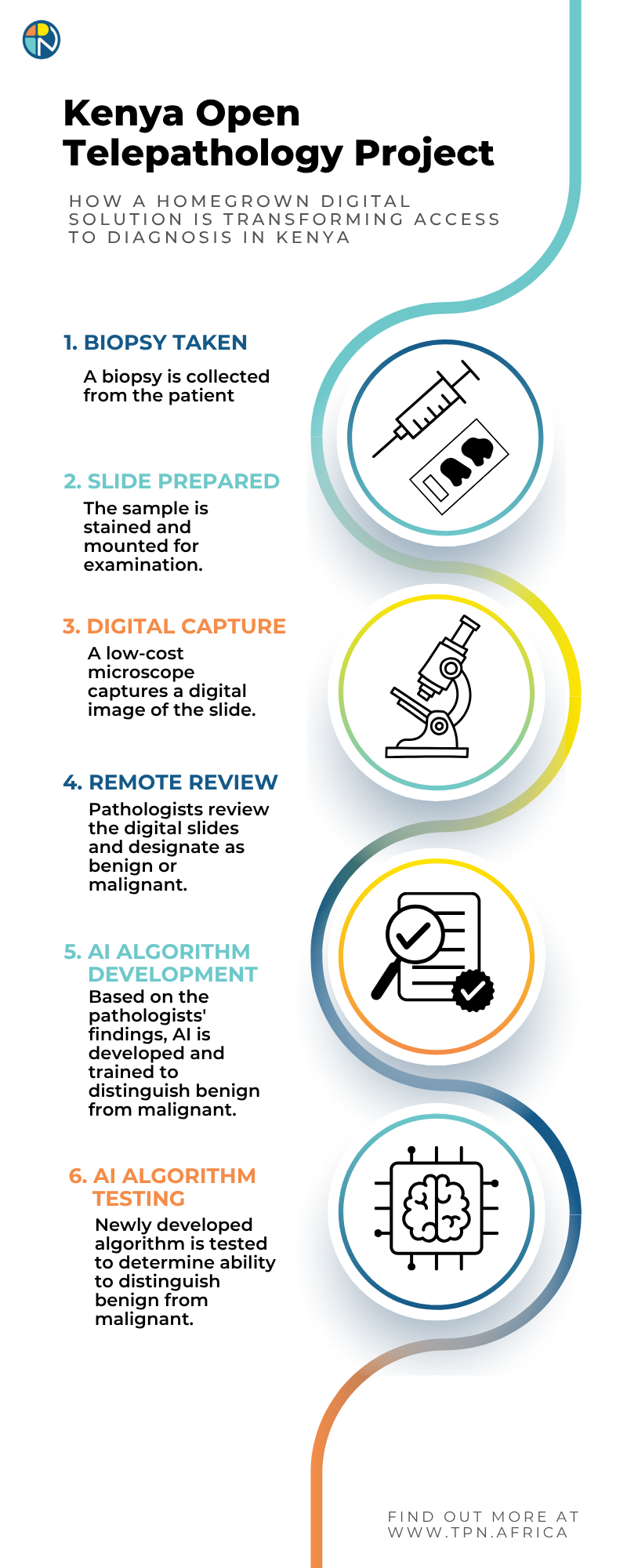Homegrown Digital Innovation Paving the Way for Accessible Pathology
The landscape of medical diagnostics in Kenya and the wider continent of Africa has long been challenged by a scarcity of pathologists and geographical barriers, limiting patient access. With just one pathologist per million people, patients often wait weeks for a diagnosis—delays that can mean the difference between life and death.
However, a truly transformative initiative by researchers at Meru University of Science and Technology (MUST) is beginning to rewrite this narrative. With support from the County Government of Meru, the researchers have launched the Kenya Open Telepathology Project—a powerful, locally developed response to a critical healthcare gap. I had the distinct privilege of being involved in this pioneering work, and it is nothing short of revolutionary.

Bridging the Distance with Digital Tools
At the heart of the project is a low-cost digital microscope, designed to capture high-quality images of pathology slides in rural clinics. But the real breakthrough comes in the next step: artificial intelligence (AI).
The project team has successfully trained AI algorithms to differentiate between benign and malignant tissue—one of the most fundamental tasks in surgical pathology. This allows a sample taken in a remote village to be digitally pre-screened by AI and then reviewed by a pathologist hundreds of kilometres away, all within a dramatically shortened timeframe.
Built in Kenya. Designed for Africa.
The Kenya Open Telepathology Project is more than a technical achievement—it is a vision for equitable healthcare. It is proof that world-class innovation can be built from the ground up, by Africans, for African health systems.

